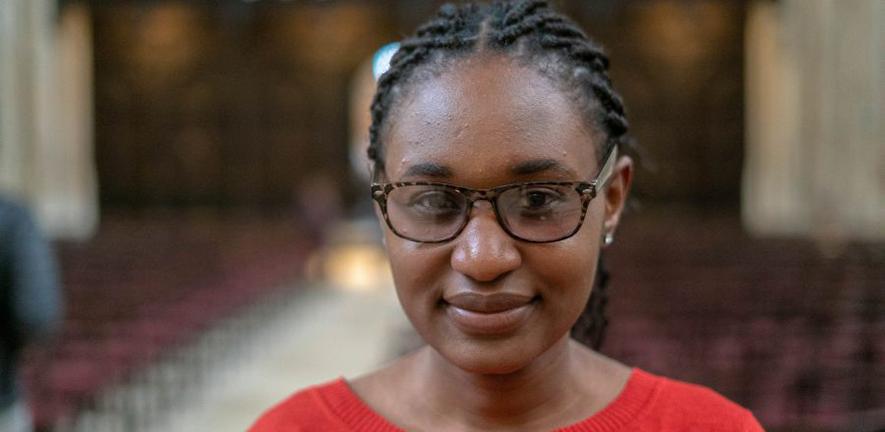
Sandile's interest in clean energy was first ignited during her undergraduate studies at the University of Zimbabwe. This was at a time of frequent power cuts in Zimbabwe. "Some of the energy in rural communities is very toxic to human health. I wanted to focus on providing alternative means of getting clean energy which were not hugely expensive," she says.
Sandile has been awarded a Gates Cambridge Scholarship for her PhD - as she was for her MPhil, which she also took here in the Department of Chemistry.
"Some of the energy in rural communities is very toxic to human health. I wanted to focus on providing alternative means of getting clean energy which were not hugely expensive."
Boosting the lifetime of photoactive materials
Working at the nanoparticle level, Sandile’s research aims to create nanoparticle support-based composites with metal-organic frameworks to boost the lifetime of photoactive materials and so increase power generation.
When she first applied to Cambridge she had planned to investigate using the metal-organic framework ZIF-67 to produce and store hydrogen. However, her supervisor said that it had a lot of problems associated with it which made it less efficient. He proposed using ZIF-8 instead which others in the research group were using. It is a more efficient, more stable material.
For her PhD she will use ZIF-8 in monolith form, which she says will enhance its ability to perform any application.
While hydrogen energy is currently quite expensive, Sandile hopes that with more research costs will come down. She adds that a major hurdle to adoption of alternative energy which needs to be overcome is the vested interests of many in government and policy making in the fossil fuel industry.
Empowering young women
Since arriving in Cambridge, Sandile has been active in the University's African Society and has also take part in events to encourage more girls to take STEMM subjects. In addition, Sandile runs the non-profit she set up as an undergraduate at the University of Zimbabwe. The Simuka-Arise Initiative is a community project working to enable the economic, social and academic empowerment of young women.
Sandile set up the organisation as a result of her experience as a single parent. She fell pregnant before she started university. She took a gap year and began working as a teacher in a local high school to support her daughter before returning to university to do a chemistry degree.
Sandile lived at home during this time and received a lot of support from her parents, for which she is very grateful. She faced a lot of abuse and violence from her daughter’s father and as a result of that she met other young women in similar situations. “They were going through the same things, but unfortunately they didn’t have the support system I had,” she says. “They had no-one to turn to. I realised I wanted to provide that support system.”
- Read a longer version of this story on the Gates Cambridge website.

